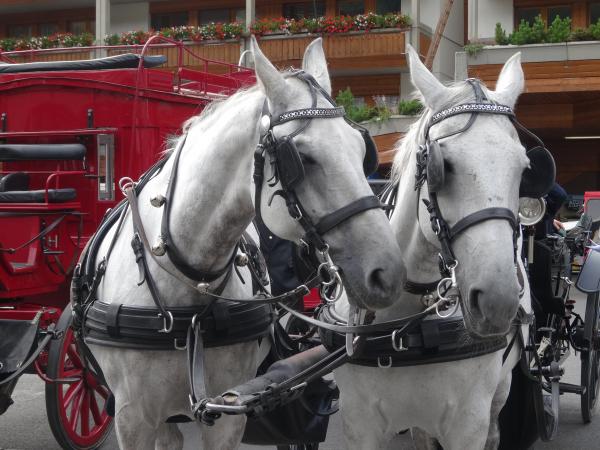Interaction - Horse, Donkey and Carriage Rides

Working horses and donkeys are part of everyday life in popular holiday destinations around the world, with hundreds of thousands employed in the tourist trade. But overwork and bad practice can lead to animals suffering.
The romantic and nostalgic horse-drawn carriage rides are not so pleasant for the animals, who must work for long hours, pulling heavy loads and enduring extreme weather conditions.
Many animals spend all day every day carrying heavy loads, as they taxi tourists across tricky terrain at bargain prices, often under the blazing sun, with little shade, water or rest. Exhausted animals suffer heat stress, injuries, dehydration, beatings and wounds as part of this ‘holiday experience’, with their poor owners working them hard to bring in a daily income. The economic profit is more important to the owners then the welfare of these animals.
The horse-drawn carriages can be involved in accidents with other vehicles, especially in cities with heavy traffic. Usually the animals have to trot, which puts the at risk to get hit by the cart if they have to come to a sudden halt. The little rest they get usually means standing at city corners, often under inappropriate conditions. When they no longer serve to generate profit, their owners sell them to slaughterhouses and replace them.
What are the issues?
There are many factors affecting the welfare of working horses and donkeys, including the size and strength of the animals, the distances and terrain they must cover, and the equipment and health care available locally.
Animals used in the tourism sector face a number of common problems. Here is a round-up of some of them:
- Overloading:. Owners may allow inexperienced tourists to ride horses or donkeys, or they might be too heavy for the animal. Heavy loads can increase the risk of serious issues like bone fractures.
- Wounds: The constant friction of saddles and other equipment can cause wounds and sores.
- Blows: Beside causing fear, blows can cause severe and painful wounds which may become infected.
- Lack of vet treatment: These animals seldom receive the required and specialized veterinary checks due to lack of interest or the high cost. It is common to see limping horses, since their horseshoes and hoofs are not maintained as they should be for walking all day long on hard pavement, which can be scorching hot in summer or slippery when wet, especially cobblestone.
- Dehydration and heat strokes: Working animals need plenty of water and shade to avoid losing essential minerals and salts as they sweat. Many of these horses suffer from malnutrition and dehydration, as well as lack of shade and resting areas.
The posture of the animal shows whether or not they are comfortable and healthy. A healthy animal will have a high head position, with eyes open and ears forward. It will also stand evenly, so look at all four legs for signs of pain or injury and check for cracked or misshapen hooves. Prominent hip bones, backbones or pelvis are a sign for poor physical condition.
Exploring an exotic landscape or a new city by walking brings you closer to nature and lets you get a better taste of the authentic lifestyle of the places you visit. You have more time to take in the details, scenes and customs which you other ways would not notice. In FAADA we believe that you should avoid the use of animals all together. Try to avoid the abuse of these animals and look for alternative transportation methods that do not harm them.
Every person has the power to prevent a working horse or donkey from suffering by making responsible choices that put the respect for the animals first.
Reference: www.thebrooke.org
International Coalition to ban horse-drawn carriages: Horses Without Carriages International
More information about Society for the Protection of Animals Abroad: SPANA
More on the use of donkeys as "tourist taxis": El Refugio del Burrito
